AESA PROGRAMMES
- Building R&D Infrastructure
- Developing Excellence in Leadership, Training and Science in Africa (DELTAS Africa)
- Human Heredity and Health in Africa (H3Africa)
- Africa’s Scientific Priorities (ASP)
- Innovation & Entrepreneurship
- Grand Challenges Africa
- Grand Challenges Innovation Network
- Rising Research Leaders/Post-Docs
- AESA RISE Postdoctoral Fellowship Programme
- African Postdoctoral Training Initiative (APTI)
- Climate Impact Research Capacity and Leadership Enhancement (CIRCLE)
- Climate Research for Development (CR4D)
- Future Leaders – African Independent Research (FLAIR)
- Critical Gaps In Science
- Clinical Trials Community (CTC)
- Community & Public Engagement
- Mobility Schemes: Africa-India Mobility Fund
- Mobility Schemes: Science and Language Mobility Scheme Africa
- Research Management Programme in Africa (ReMPro Africa)
- Science Communication/Africa Science Desk (ASD)
- Financial Governance: Global Grant Community (GGC)
- AAS Open Research
- CARI Programmes
- Evidence Leaders Africa (ELA)
All Affiliates
AAS Fellows and Affiliates are distinguished researchers who represent the Continent’s talent and promising men and women from across the globe
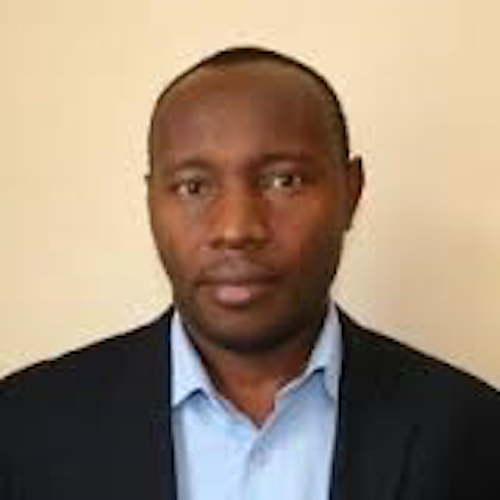
Medical & Health Sciences
Kenya
Cohort 4
Gitaka is a Kenyan Physician-Scientist trained at the University of Nairobi, a holder of Masters of Tropical Medicine and PhD in Medical Science from Nagasaki University, Japan.
His experience spans clinical practice and trials, molecular biology and epidemiology of malaria, field-based research, lecturing and implementation science.
Currently, he is a Principal Investigator in 8 studies in the areas of maternal and newborn health (MNH) and infectious diseases. Specifically, his current work is on the development of better technologies to diagnose subclinical infections that are known to contribute to adverse pregnancy outcomes and antimicrobial resistance surveillance.
He is also leading the Collaborative Newborn Support project for the last 3 years which aims to enhance access and quality of newborn care using telehealth and health systems strengthening. His teams’ projects are funded by among others, African Academy of Sciences (Grand Challenges Africa), Terumo Foundation for Life Sciences and Arts, Japan, USAID, DFID- UK, Grand Challenges Canada, Newton-Utafiti Fund and the National Research Fund, Kenya.
Over the years, he has established strong collaborations across the world and is published in reputable peer-reviewed journals.
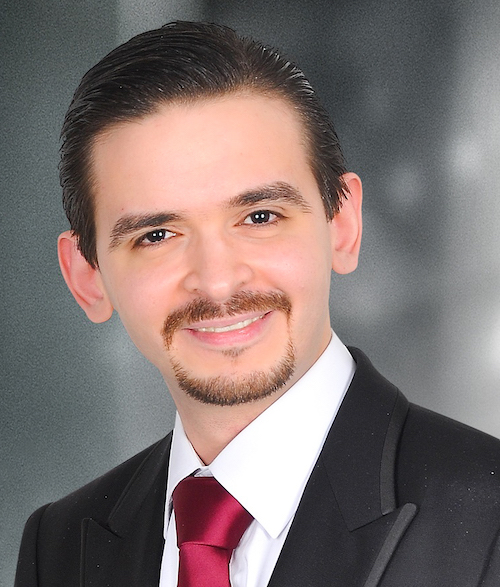
Engineering Technology & Applied Sciences
Egypt
Cohort 4
Ahmed M. Heikal received the B.Sc. (with an “excellent” grade) in electronics and communications engineering, Mansoura University, Egypt, in 2006 and the Ph.D. degree from University of South Wales, UK, in 2013. Dr Heikal has authored or co-authored over 56 research papers (Citations: >290, H-index: 10) including over 26 papers in peer-reviewed journals and over 30 papers in conference proceedings. His research is situated in the field of photonics, with a special focus on computational modelling, plasmonic devices, optical sensors, energy harvesting devices, and optical communication devices. He has received several important Recognitions to his research career, including the Prize of the best PhD Thesis, Faculty of Computing, Engineering and Science, University of South Wales, UK; Incentive State Award for Engineering Sciences from the Egyptian Government, Egypt; and Shorouk Academy Awards for Scientific and Technological Creativity, Egypt. He was elected by Minister of Higher Education and Research in Egypt as a member of the National Council for Communications and Information Technology, Academy of Scientific Research, Egypt. Dr Heikal also is elected by Minister of Higher Education and Research in Egypt as a member of the National union of Radio Science, Academy of Scientific Research, Egypt. Recently, Dr Heikal is the Director of Center for Nanotechnology, Mansoura University, Egypt.
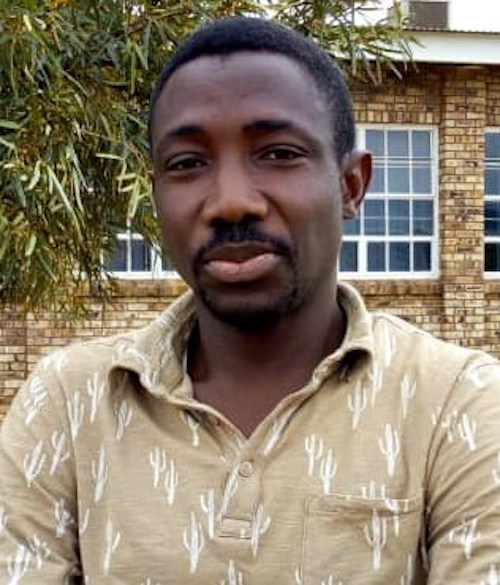
Agricultural & Nutritional Sciences
Nigeria
Cohort 4
Dr Yusuf obtained his Bachelor of Agriculture in 2008 from the University of Agriculture, Abeokuta, Nigeria. He then joined the service of the Federal University of Agriculture, Abeokuta precisely on the 24th of March 2009 as a Junior Research Fellow having emerged as the best graduating student in the Department of Animal Production and Health during the 2006/2007 session. He was later upgraded to the post of an Assistant Lecturer after the successful completion of my Masters’ degree programme, then to the post of Lecturer II after successful completion of his PhD programme in 2015.
His research interests include sustainable livestock production to curb food insecurity; alternative feeding in a ruminant animal in the face of recent climatic changes, mitigation of methane production in ruminants through the administration of plant extract and organic compound supplementation in animals and use of organic acid as phytobiotics and growth as against conventional antibiotics.
He has served as a postdoctoral fellow at North West University, Mafikeng, South Africa and recently bagged an international Diploma in Animal Feed, PTC, AERES, Netherlands. My research focuses on alternative feeding in ruminant production, nutrition health and welfare.
He belongs to many professional bodies which include; African Academy of Science, South African Council for Natural Scientific Profession, Nigerian Society of Animal Production, Animal Science Association of Nigeria and World Poultry Science Association.
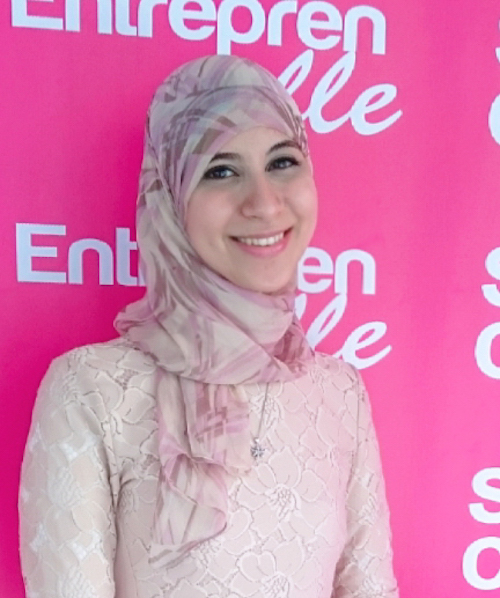
Medical & Health Sciences
Egypt
Cohort 4
Dr Mai Tolba is an Assistant Professor of Pharmacology and Toxicology, Faculty of Pharmacy, Ain Shams University, Cairo, Egypt. She got her Ph.D. in 2013, through a joint supervision scholarship between Ain Shams University and The University of Texas Medical Branch, Galveston, Texas, USA. She received a Fulbright Scholar Award in 2015 to conduct postdoctoral research at the University of California, Irvine and Chapman University School of Pharmacy in Irvine, California, USA. She also received L’Oreal-UNESCO for Women in Science Fellowship in 2016 for her research in the field of studying the mechanisms of resistance of hormone-responsive cancers to chemotherapy. Dr Tolba is currently focusing on investigating novel strategies to enhance tumour response to immunotherapy which is the evolving approach in the management of hard to treat cancers. Dr Tolba has co-authored various publications in the fields of Pharmacology and Drug discovery that was published in highly prestigious journals. She also participated with several presentations in both national and international conferences. The long-term goal of Dr Tolba’s research work is to improve the wellbeing of cancer patients. Dr Mai Tolba always believes that to change the world you should start by yourself and do the best you can in your field. She has always loved Gandhi’s quote ‘’Be the change you want to see in the world”
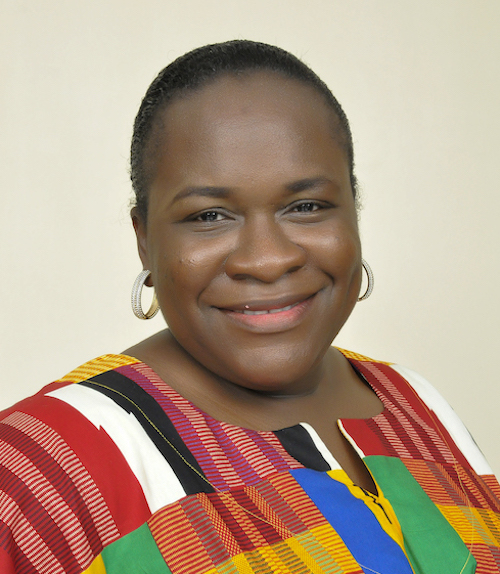
Biosciences
Nigeria
Cohort 4
Dr Sogbanmu obtained her PhD in 2016 from the University of Lagos (Nigeria). She joined the Zoology Department of the University of Lagos (Nigeria) as an Assistant Lecturer in 2014 and rose through the ranks to become a Lecturer II in 2016.
Her research interests include ecological risk assessments of crude oil/petroleum products, polycyclic aromatic hydrocarbons (PAHs), volatile organic compounds (VOCs), organochlorine pesticides (OCPs) and effluents; developmental biomarkers in model fish species exposed to PAHs, OCPs, effluents and coastal sediments; molecular and behavioural markers of exposure to and effects of xenobiotics; application of OMICs technologies in ecotoxicology studies; guideline/method development for fish embryo toxicity tests using indigenous fish species; bioremediation of organic pollutants in aquatic ecosystems and ecological risks communication.
She has over 15 journal publications (2019) which have earned her several awards, fellowships and grants including the L’Oreal-UNESCO For Women in Sub-Saharan Africa award (2014), PADI Foundation research grant (2016) and Royal Society fellowship (2018). She was a Visiting Research Associate/Scholar at the King’s College London (2014) and University of British Columbia (2018). She has been a member of the Faculty of Science Seminar Committee, Course Adviser and Reviewer for journals such as Chemosphere and Environmental Monitoring and Assessment.
She has served as an Ecology/Waste Management Expert on environmental impact assessment draft report review panels constituted by the Federal Ministry of Environment, Nigeria in 2018 and 2019, member, Board of Trustees, Society for Environmental Toxicology and Pollution Mitigation (SETPOM) since 2013. She is a sought-after career development facilitator having delivered invited lectures at meetings and seminars organised by Anchor University, Women Advancement Forum International Exchanges, Research and Academia (WAFIRA), Nigerian Environmental Society (NES) among others. She plays active roles in several professional societies including the Society of Environmental Toxicology and Chemistry (SETAC), Society of Toxicology (SOT) and SETPOM.
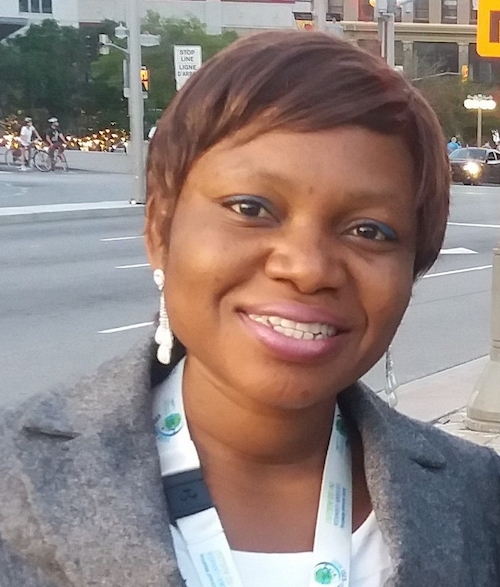
Biosciences
Nigeria
Cohort 4
Dr Owoseni obtained her PhD in 2017 from the University of Fort Hare, South Africa, then returned to the Department of Microbiology, Federal University Lafia, Nigeria to continue her tenure position.
Her research interests include rapid diagnostic techniques in detecting microbial contaminants in water, antimicrobial resistance studies, microbial related infectious diseases and development of therapeutic strategies for antimicrobial resistance using medicinal plants.
She is currently implementing collaborative research projects on low-cost biosensors for monitoring drinking water with researchers in the University of Glasgow, the Centre International de Référence Chantal Biya pour la Recherche sur la Prévention et la Prise en charge du VIH/SIDA" (CIRCB), Cameroon and Elizade University, Nigeria, sponsored by the Frontiers of Development and using ICT-enabled multisector-based approach to weather information for monitoring water resources with researchers at University of Uganda and Institute of Developmental studies sponsored by Global Challenges Research Fund.
Dr Owoseni has served a level adviser, the liaison officer for the Nigeria Society for Microbiology, Federal University Lafia, and the Leader, Research for Innovation and Development Group (RIDE), Federal University Lafia, Nigeria.
She is a member of several professional societies including the Nigeria Society for Microbiology (NSM), Society for Applied Microbiology (SFAM), American Society for Microbiology (ASM) and International Society for Environmental Epidemiology (ISEE). She has 14 publications (2018).
Her future activities include engaging the public by creating awareness of science education among students in high school especially girls and to educate them on the pursuit of science programmes and enrolment for a University education.
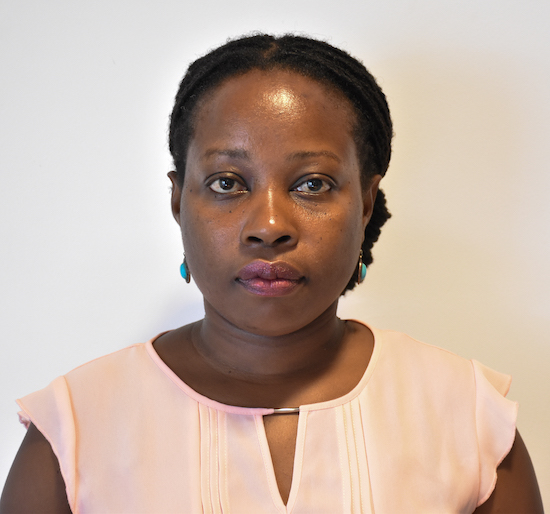
Medical & Health Sciences
Kenya
Cohort 4
Dr Martha Mwangome holds an M.Sc. in Global Health Sciences from the University of Oxford and a Ph.D. in Nutrition Epidemiology from the London School of Hygiene and Tropical Medicine (LSHTM). Dr Mwangome is a Research scientist at KEMRI/Wellcome Trust Research Program, Kilifi, Kenya. She has more than 10 years’ experience in public health and nutrition research in Africa. Her research has broadly focused on strategies to identify, prevent and manage nutritional vulnerability among infants aged below 6 months (u6m) employing both qualitative and quantitative methods of data collection and analysis. She has published extensively on extending the use of simple anthropometric measurements such as the mid-upper arm circumference (MUAC) to define nutritional vulnerability in early infancy. She is currently funded by the Global Health strategy, Africa Research Excellence Fund(AREF) and Bill and Melinda Gates Foundation to assess the applicability of 2013 WHO updated guidelines for treatment of ill malnourished infants u6m and explore the use of breastfeeding peer supporters towards re-establishing exclusive breastfeeding of ill malnourished infants within public hospital setting. She is also funded to estimate body composition of malnourished infants u6m and the composition of breastmilk consumed by infants u6m presenting with different nutritional classifications. Dr Mwangome is a member of the African Nutrition Society (ANS) and the American Society of Clinical Nutrition (ASN). She actively participates in the Nutrition research technical working group (TWG) in Kenya, the Management of Acute Malnutrition in infants under 6 months (MAMI) special interest group and the Concurrent Wasting and Stunting (WaSt) Technical working group hosted by the Emergency Nutrition Network.
Agricultural & Nutritional Sciences
Kenya
Cohort 4
Caroline Muneri is an early career researcher and lecturer at Egerton University, Faculty of Veterinary Medicine and Surgery, Department of Veterinary Surgery, Medicine and Theriogenology. She holds a PhD in Clinical Veterinary Medicine (Theriogenology) from Nanjing Agricultural University China, an MSc. in Veterinary Pathology, Microbiology and Parasitology, and Bachelor of Veterinary Medicine from the University of Nairobi. During her PhD Dr Muneri studied the effects of Epimedium and its ingredients in reproduction using a mouse model. She later worked with Pwani University where she pursued her interests in antimicrobial resistance in zoonotic diseases. Her research interests include; animal reproduction, antimicrobial resistance, zoonotic diseases and integration of science, policy and extension. Dr Muneri has published several peer-reviewed publications and presented in various local and international scientific conferences and meetings. In addition, she is actively involved in community outreach programs in various regions in Kenya.
Dr Muneri previous stints include working with the Ministry of Agriculture Livestock, Fisheries and Irrigation at the State Department of Livestock, Directorate of Veterinary Services. Her roles included reviewing of animal disease control policies and strategies such as the veterinary policy, the strategy for Tsetse and Trypanosomiasis Eradication in Kenya 2011-2021. Earlier in her career, she interned at the Agricultural Sector Coordination Unit a think tank of the Agricultural ministries where she contributed to the development of the National Agricultural Research Policy, Agricultural Sector Communication Strategy, National Beekeeping Policy, National Livestock Policy and the vision 2030 of the establishment of animal disease free zones amongst others. Dr Muneri is a member of the Kenya Veterinary Board and has severed in various leadership roles in the Kenya Veterinary Association Eastern Branch and as the Secretary to the Kenya Veterinary Association Council (2011-2013). She is a member of the Kenyan Chapter of the Global Antibiotic Resistance Program (GARP) Working Group (2011-2013).
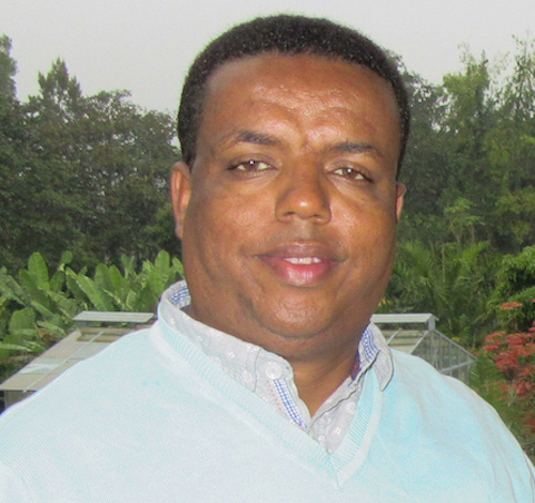
Agricultural & Nutritional Sciences
Ethiopia
Cohort 4
Dr Meressa obtained his PhD in 2014 from the University of Bonn (Germany); then joined the Department of Horticulture and Plant Sciences of the Jimma University (Ethiopia) and got the rank of Assistant Professor in June 2015.
His research interests include detection of plant-parasitic nematodes associated with agricultural crops; systematics of nematodes; plant-nematode interaction; biology and epidemiology of plant-parasitic nematodes; biological control of plant-parasitic nematodes He is now heading the Postgraduate programs coordination office of the Department of Horticulture and Plant Sciences and leading the plant protection case team in the department. He has served as a board member of the Alumni- Network Sub Sahara Africa; He is a member of the Executive Committee of Ethiopian Society of Microbiology, Ethiopian Horticultural Science Society. He is the managing editor of the Ethiopian Journal of Applied Science and Technology, and a Review Editor on the Editorial Board of Plant-Microbe Interactions.
He has published a significant number of peer-reviewed scientific articles in international journals. He has also co-authored a chapter “Nematodes parasites of vegetables” in the 2018 edition of the standard reference book “Plant parasitic nematodes in subtropical and tropical agriculture”
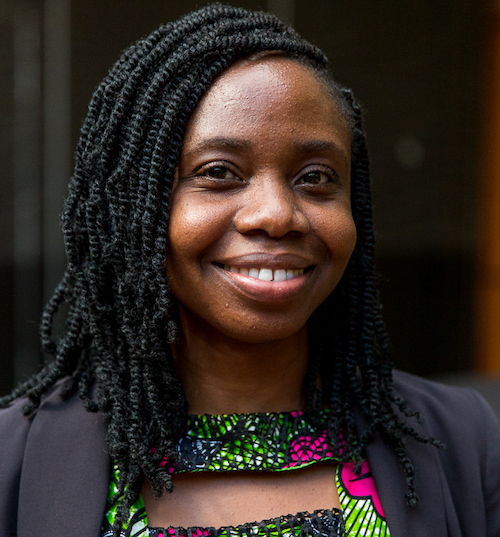
Medical & Health Sciences
Ghana
Cohort 4
Dr Mante obtained her Ph.D. in 2013 from the Kwame Nkrumah University of Science and Technology, Ghana; then joined the Pharmacology Department of the same University and is currently a Senior Lecturer. She has trained as a postdoctoral researcher at the University of Michigan Medical School, USA.
Her research interests include investigating natural products for activity against drug-resistant epilepsy types such as Dravet Syndrome. Her current efforts are geared towards natural products and voltage-gated sodium channel activity. Her research incorporates the use of animal disease models and whole-cell patch clamp techniques to discover new and potent therapeutic options for epilepsy, depression and anxiety. She also has an interest in the health-related quality of life research. Dr Mante has received the International Rising Talent Award in 2019 for her research. She is a beneficiary of the L’Oréal-UNESCO FWIS Regional Fellowship, University of Michigan STEM Seed Grant, University of Michigan African Presidential Scholars Program and a Fellow of the African Science Leadership Programme.
She is a registered Pharmacist and current Chair of the Ghana Young Academy. She has 22 publications (2019).
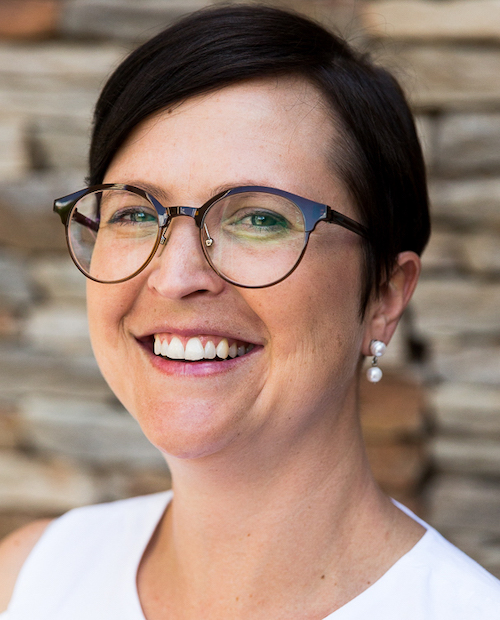
Medical & Health Sciences
South Africa
Cohort 4
I am a laboratory-based postdoctoral fellow from Stellenbosch University with an interest and expertise in neuropsychiatric genetics and the gut microbiome. I have been involved in several neuropsychiatric genetics projects over the past eleven years, with a special focus on posttraumatic stress disorder (PTSD). For my postdoctoral research (2014-2016), I received an Innovation Postdoctoral Fellowship (NRF) and Biological Psychiatry Research Development Award to investigate the role of non-coding RNAs in D-cycloserine-facilitated fear extinction. More recently, I have led the development of a gut microbiome project for psychiatric disorders. Our study on patients with PTSD was the first gut microbiome study published on PTSD and the first study from a South African (SA) cohort. I received a Self-initiated Research Grant (MRC) and Biological Psychiatry Research Development Award to continue the PTSD gut microbiome research in a larger cohort and to perform mechanistic immunological measurements. I also received a NARSAD Young Investigator Award for the proposed saNeuroGut project. In 2017, I spent three months at KU Leuven, Belgium, to learn microbiome data analysis skills. This motivated me to initiate a large-scale microbiome study in South Africa, the saNeuroGut project: a South African Microbiome Initiative in Neuroscience (www.saneurogut.org). It is one of the first large-scale, population-based microbiome studies in SA. I have presented my research at several national and international conferences and to the public. I am involved in several collaborative projects on psychiatric genetics and the gut microbiome. I have supervised, co-supervised and served as examiners to postgraduate students. I have published 15 peer-reviewed manuscripts and have a Scopus H-factor of eight. High rates of violence contribute to the high rates of PTSD in SA; I, therefore, hope that my research will contribute towards a better understanding and improved treatment strategies for mental health disorders, especially in South Africa.
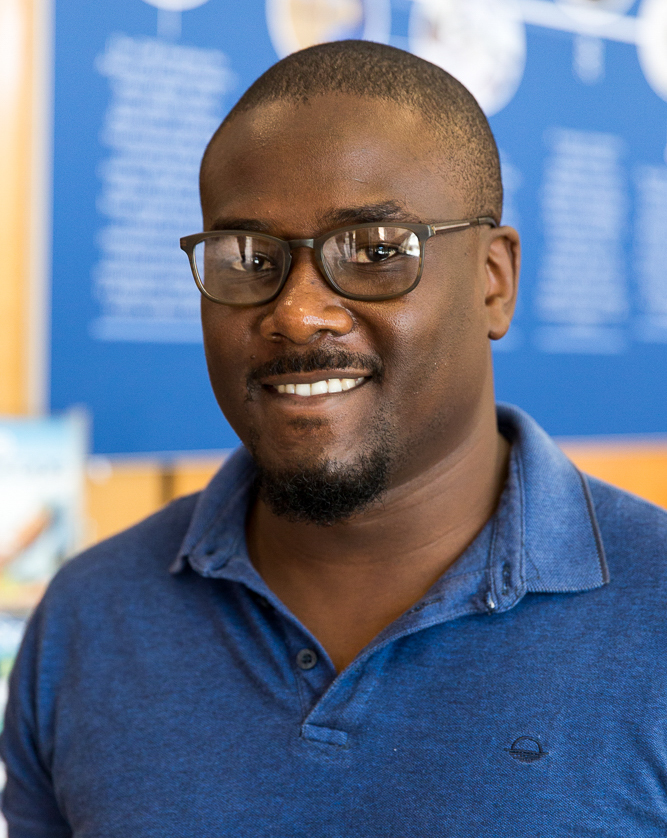
Medical & Health Sciences
Zimbabwe
Cohort 4
Dr. Prestige Tatenda Makanga is an applied geo-information scientist with a primary interest in global health. He holds a Ph.D. in Geography (GISc) from Simon Fraser University in Canada, an MSc Eng. in Geomatics from the University of Cape Town and a BSc (Hons) in Surveying and Geomatics from the Midlands State University in Zimbabwe. He teaches geographical information systems (GIS) and Spatial epidemiology at Midlands State University in Zimbabwe and co-leads 3 projects, including Mapping Outcomes for Mothers (MOM), RoadMApp and the health geography component of the PREgnancy Care Integrating translational Science Everywhere (PRECISE) network. His work primarily utilizes geographic methods to elucidate risk and resilience factors associated with maternal outcomes. MOM has developed new techniques for modelling the seasonal variation in geographical access to maternal care, and evidence for some of the place-specific factors that elevate risk for adverse maternal events. RoadMApp facilitates access to pregnancy-related care and is built upon a novel spatiotemporal model of access to maternal health care. RoadMApp accounts for road and weather conditions in near-real time and links women to local transport resources to facilitate their transit to maternal care. Within PRECISE Tatenda explores geographical influences on placental disorders including High blood pressure in pregnancy, fetal growth restriction and stillbirths. He is also an active member of the USAID’s steering committee on mapping and reporting maternal deaths, where he is contributing to new policy directions concerning the use of geographical information systems in mapping maternal health trends to better target interventions.
Pagination

Elected: